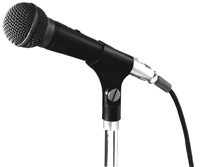Libraries at University of Nebraska-Lincoln

University of Nebraska-Lincoln Libraries: Presentations
ORCID IDs
Date of this Version
3-2-2010
Document Type
Article
Abstract
An Institutional Repository is an online locus for collecting, preserving, and disseminating —in digital form —the intellectual output of an institution, particularly a research institution.
There are > 900 worldwide, > 150 in USA, including: ...
UNL's ranks 2nd, with more than 39,000 documents.
UNL Participants include [100 names]
There are some whole departments/centers that we have been authorized to collect & upload.
Who has the most articles ?
Who gets the most downloads ?
Downloads: •3.6 million since 2006; •1.5 million in past 12 months; •Current average = 5,000 /day; •Average article = 5 times/month; •to 150+ countries worldwide (25% of usage is international)
Every month authors get an email with: Usage Statistics for your DigitalCommons@Universityof Nebraska -Lincoln articles ...
Traffic Sources: Search engines 63%, Referring sites 26%, Direct traffic 10%
Copyright & Permissions: 1.Inclusion in the repository does not alter an article's copyright status. 2.We only post articles for which we can obtain the publisher's or copyright holder's permission. (About 80% of publishers allow some version to be used.)
The Good Guys: Some publishers allow use of the published version of an article: [list]
Good | Evil :Less than perfect, but better than some, these publishers have given permission to post an “author’s version,” but not the exact publisher’s version: [list]
Evil only: These publishers do not allow full-text posting of any versions: [list]
Open Access content by permissions status (at UNL)
How do I get my articles into the repository ? 1.email me your vita (or publication list) proyster@unl.edu; 2.( There is no step 2. )
Services UNLDigital Commons provides: •permissioning •hunting and gathering •scanning •typesetting •metadata-ing •uploading & posting •usage reporting •promoting •POD publication
Can I do it myself ? Yes. [how-to]
Paying for Open Access: Most publishers will make your article "open access" for a fee —up to $5,000; so-called "Gold OA". But it still won't be exposed to most search engines, and many non-subscribers will never find it.
"Self"-Archiving for Open Access: Most publishers will allow you to self-archive for free —this also makes your article open access; so-called "Green OA". And Google, GoogleScholar, etc. will index it and send users there.
We also do Original Publications
A PDF version of the PowerPoint is available by clicking the "Download" button at right. The PowerPoint file (.pptx) is attached below as an "Additional file"
PowerPoint slides (pptx) -- 25 slides


Comments
Invited presentation to UNL Faculty Senate, March 2, 2010